Basic Addition Skills Easy Addition & Subtraction Worksheets for Ages 6-7
5 filtered results
-
From - To
Our "Basic Addition Skills: Easy Addition & Subtraction Worksheets for Ages 6-7" are designed to foster early math skills in young learners. These engaging and colorful worksheets help kids practice simple addition and subtraction in a fun and interactive way. With puzzles, games, and activities, our resources are perfect for children beginning to understand mathematical concepts. Ensure your child builds a solid foundation in math with our expertly crafted exercises, ideal for home or classroom use. Both educational and entertaining, these worksheets will inspire confidence and a love for learning in your young mathematician.
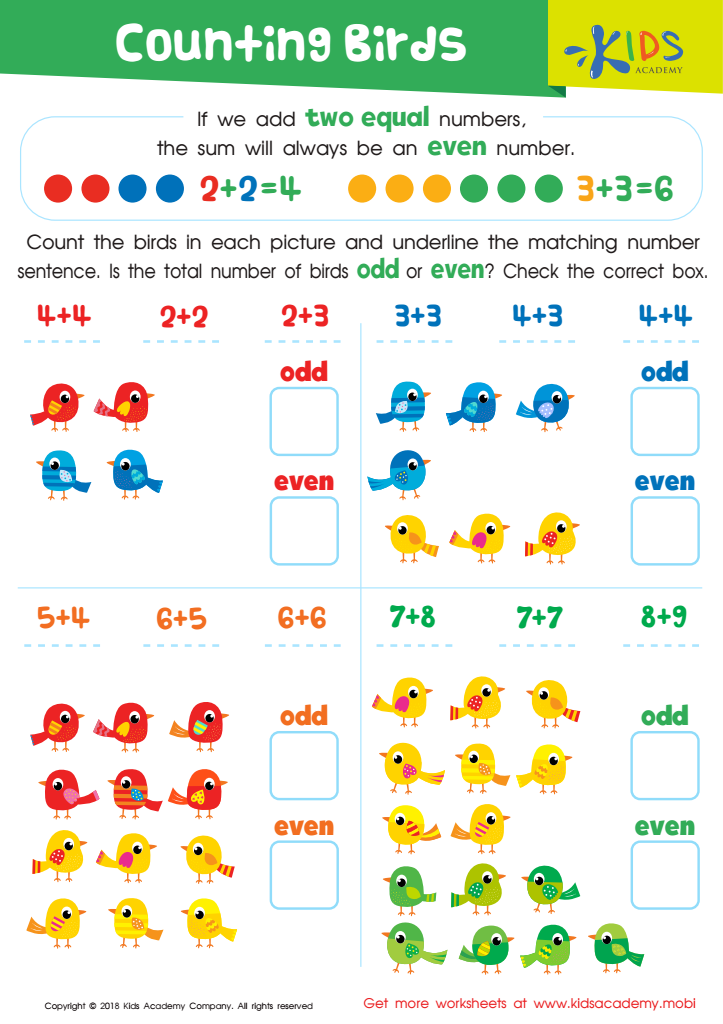

Counting Birds Worksheet
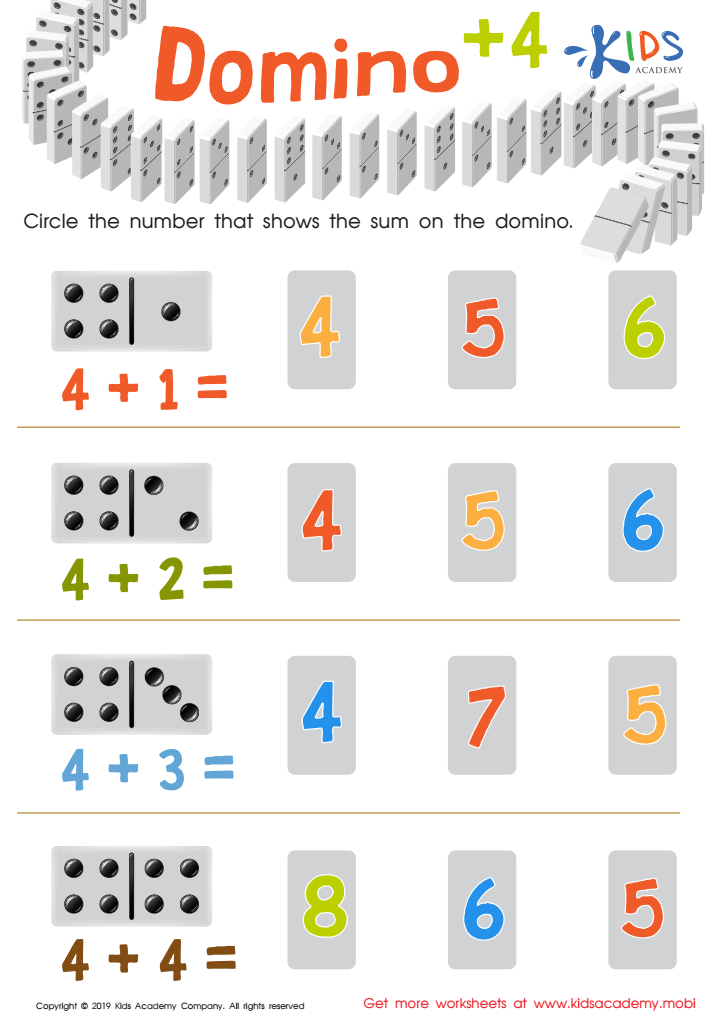

Domino +4 Worksheet
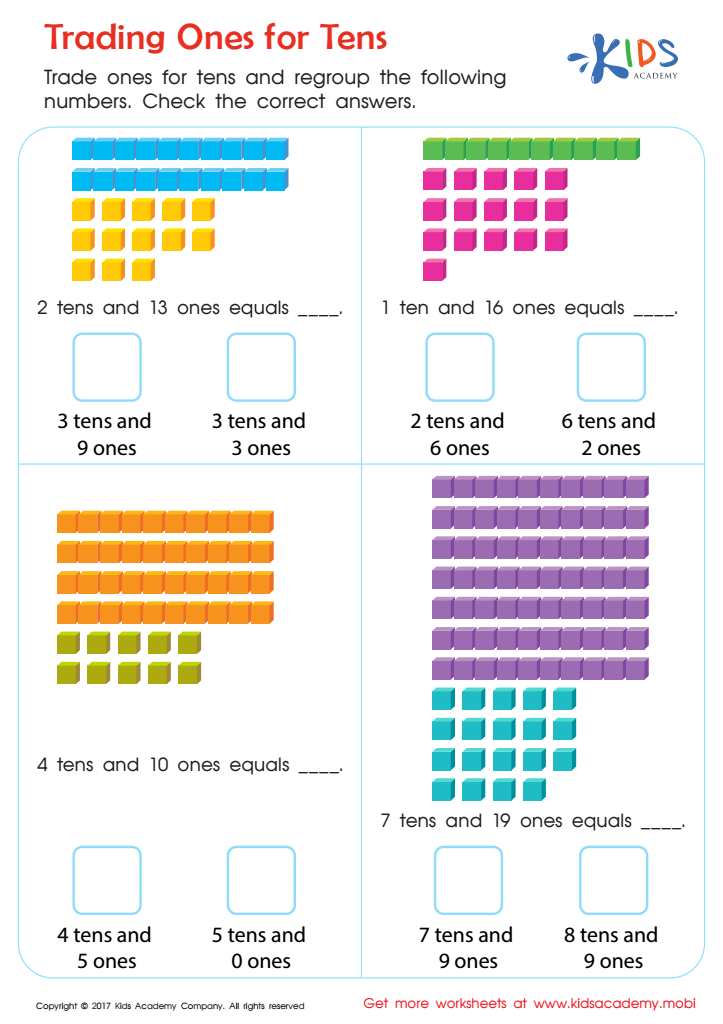

Trading Ones for Tens Worksheet
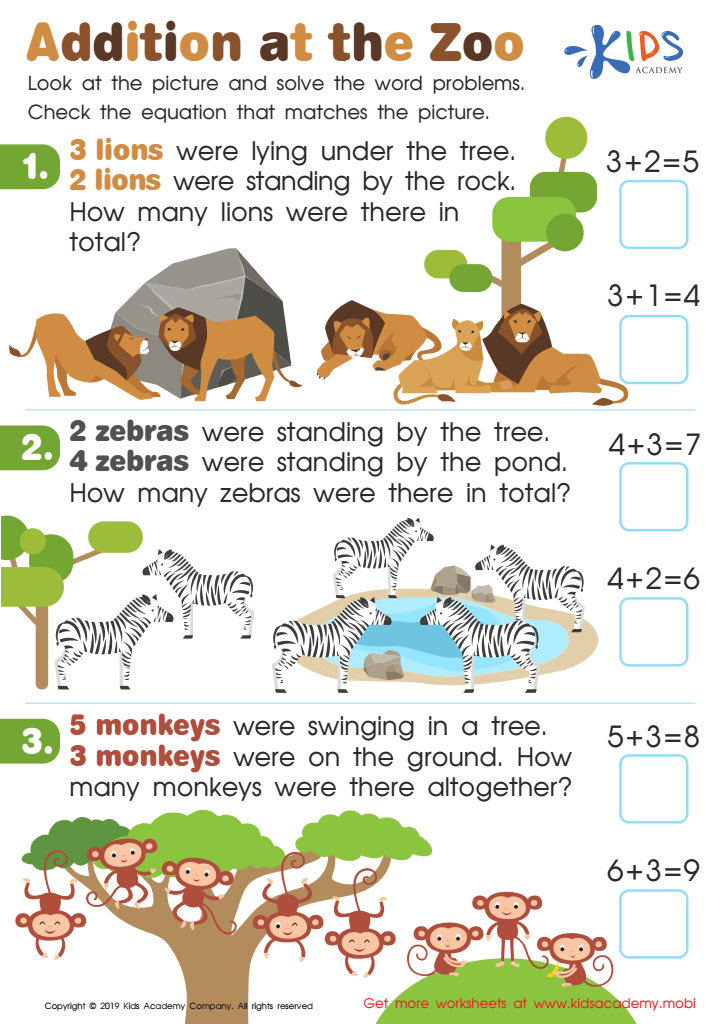

Addition at the Zoo Worksheet
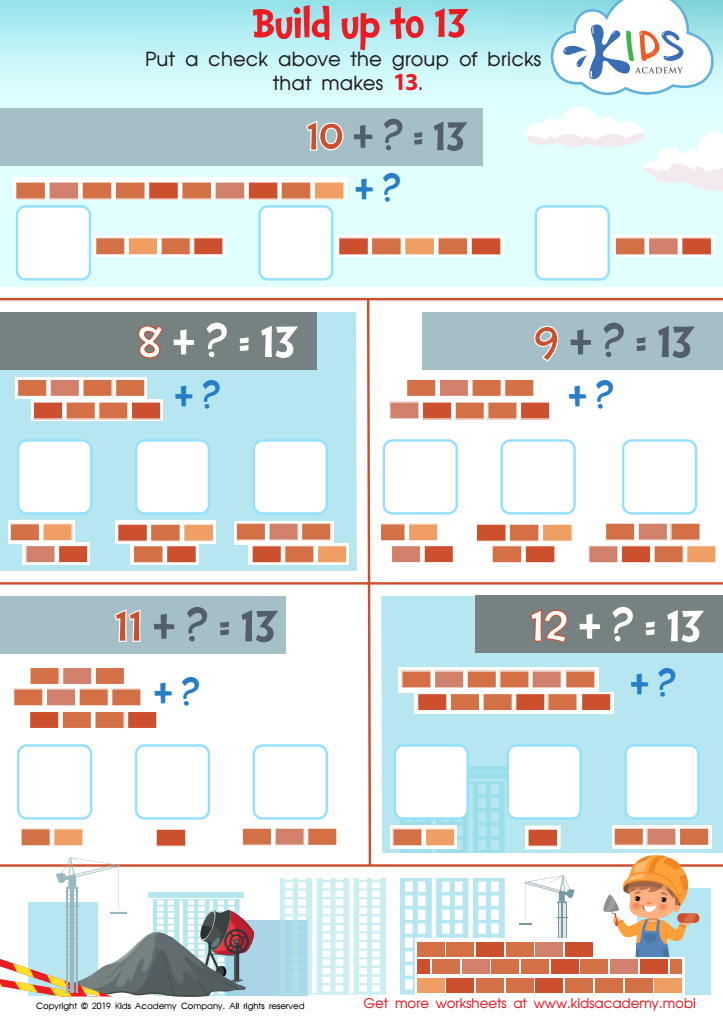

Build up to 13 Worksheet
Parents and teachers should prioritize developing basic addition and subtraction skills for children aged 6-7 because these are foundational mathematical concepts essential for future academic success. At this critical stage, young children are developing cognitive abilities that shape their understanding of numbers, patterns, and problem-solving techniques. Mastering the basics of addition and subtraction enhances their confidence and sets a solid groundwork for more advanced mathematical operations such as multiplication, division, fractions, and algebra.
Basic addition and subtraction are not just academic necessities; they also have broad applicability in daily life. Children frequently encounter situations that require these skills, such as counting objects, distributing items equally, or understanding time and money. By gaining proficiency, children develop logical reasoning and critical thinking, which further boosts their comprehension and performance in other subjects as well.
Moreover, being adept at basic arithmetic can have a positive impact on a child's self-esteem and reduce anxiety related to math problems. Teachers and parents play crucial roles in offering consistent practice, employing engaging activities, and creating an encouraging environment to foster a love for math. Ultimately, early competence in addition and subtraction paves the way for lifelong numeracy and problem-solving prowess, equipping children with essential tools for their educational journey and beyond.
 Assign to My Students
Assign to My Students





















